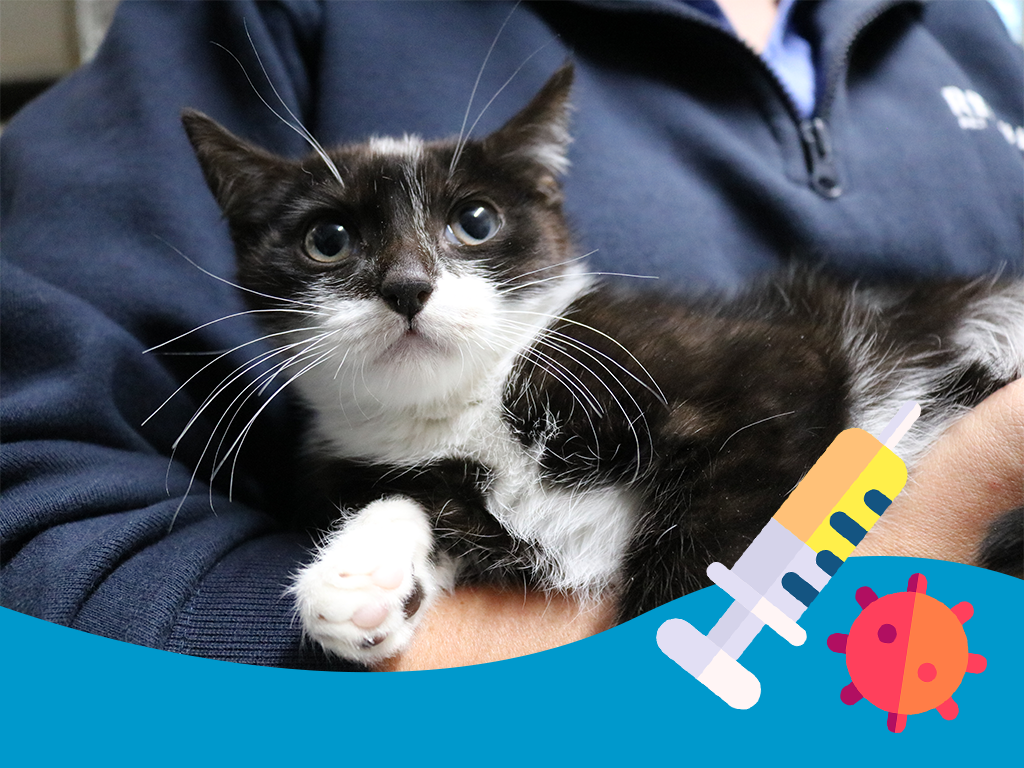There are half a dozen different types of vaccines available for cats. Like human vaccines, they are designed to induce an immune response and thereby protect your pet against some dangerous diseases. In Australia the core vaccination for cats is the ‘F3’- a vaccine that protects against feline panleukopenia, feline herpesvirus, and feline calicivirus. Your veterinarian may recommend other additional vaccines depending on your cat’s circumstances, but this article will focus on the diseases targeted by the F3 vaccine.
What is feline panleukopenia?
Feline panleukopenia is a highly contagious viral disease, similar to parvovirus in dogs. The virus attacks rapidly dividing cells in the intestines and bone marrow, causing vomiting, diarrhoea, loss of appetite, dehydration, fever, and lethargy. Infection in unvaccinated cats can be rapidly fatal, while infection in pregnant cats can result in abortion or developmental abnormalities.
How is panleukopenia spread?
The panleukopenia virus can be found in all bodily secretions of affected cats, but is primarily spread via faeces. The virus can survive for months in the environment, and is resistant to many disinfectants.
Which cats are at risk of feline panleukopenia infection?
Kittens under 6-months of age are most at risk, although unvaccinated cats of any age can be affected.
How effective is vaccination against panleukopenia?
Vaccination is very effective at inducing long lasting immunity and preventing cats getting panleukopenia.
What about feline herpesvirus and feline calicivirus?
These are two of the viral causes of cat flu. Together feline herpesvirus and feline calicivirus are responsible for about 90% of cat flu cases. Cat flu is a general term for infection of the upper respiratory tract of cats. Symptoms of cat flu include sneezing, nasal discharge, weepy eyes, oral or nasal ulcers, fever, and loss of appetite. Cat flu is generally self-limiting (i.e. it resolves with time), however vulnerable young kittens or immunocompromised individuals can develop more severe disease.
How do feline herpesvirus and feline calicivirus spread?
Both herpesvirus and calicivirus are shed in respiratory and ocular secretions, and disease spreads by either direct contact between cats, or by indirect by contact with contaminated surfaces or objects. Herpesvirus can only survive a day in the environment and is easily disinfected, but calicivirus is more resistant and can survive up to a month. In some cats who have had cat flu, the viruses will survive in their bodies in an inactive form, and then cause flares of disease during periods of stress, so a new episode of illness may not mean a recent exposure or infection.
Which cats are at risk of feline herpesvirus and calicivirus infection?
Kittens are predisposed to infection (because of their immature immune systems), as are cats who enter animal shelters, catteries, cat shows, or any other environment with lots of cats and/or stress.
How effective is vaccination against feline herpesvirus and feline calicivirus?
Vaccination is effective at reducing the severity of disease caused by herpesvirus and calicivirus, but it does not completely prevent disease. It is important to remember that there are other agents that can cause cat flu as well, some of which can be covered by different vaccines and others for which there are no vaccines.
The bottom line:
Vaccination is a critical component of caring for your cat. It is always advisable to discus vaccine options and schedules with your regular veterinarian, who can advise on the best choices for their specific needs. And you should always contact your vet if your pet shows any signs of panleukopenia, cat flu, or other illness.
Disclaimer: The information and advice in this post is general in nature. It is not intended as a substitute for tailored health care advice from your regular veterinarian.

